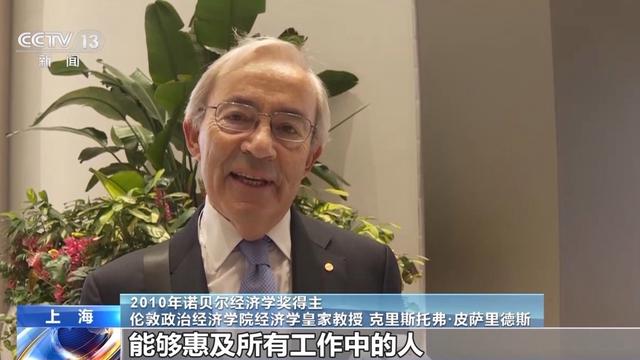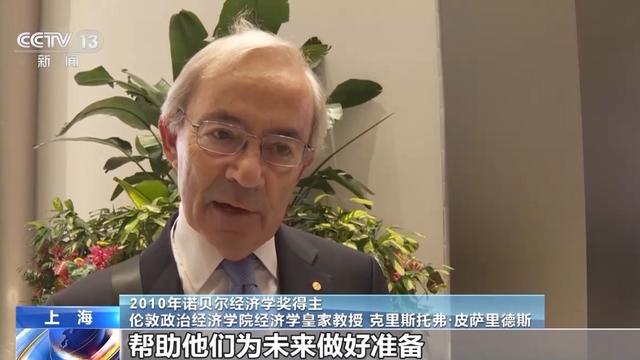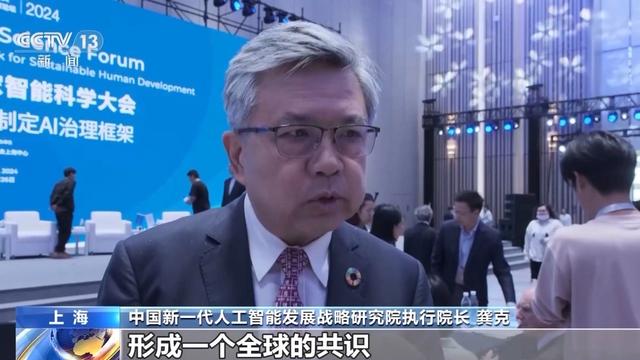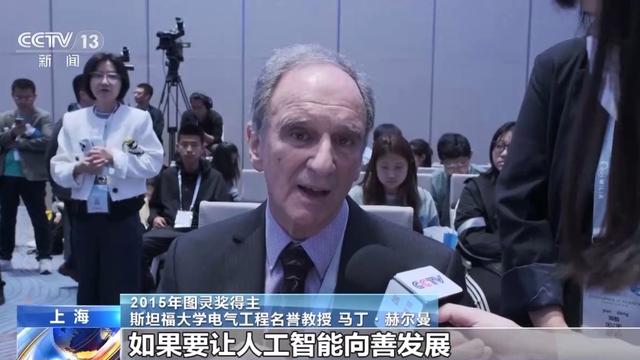The 2024 World's Top Scientists Forum will be held in Lingang, Shanghai from October 25th to 27th. With the theme of "Excellent Scientific Innovation for Achievements", this forum held more than ten special conferences such as the Youth Science Conference, and shared cases around topics such as materials, energy, life sciences, intelligent sciences, and physical sciences to promote scientists, entrepreneurs, Entrepreneurs, investors, etc. conduct exchanges and collisions of ideas.
At the meeting, scientists focused in depth on artificial intelligence and had in-depth discussions on the profound changes that artificial intelligence will bring to society and the opening of a new era of scientific research, as well as the ethical challenges and regulatory needs brought by artificial intelligence.
01Digital-driven artificial intelligence brings profound changes
The world's top scientists talk about how to make artificial intelligence better used by people and develop for good? Let’s go and have a look↓
The era of widespread application of artificial intelligence has arrived
This forum invited nearly 300 scientists from nearly 20 countries and regions around the world, including more than 50 top overseas scientists including 11 Nobel Prize winners, and more than 40 academicians and senior scientists from the Chinese Academy of Sciences and the Chinese Academy of Sciences. Scientists say that the era of widespread application of artificial intelligence has arrived.

Christopher Pissarides, winner of the 2010 Nobel Prize in Economics and Royal Professor of Economics at the London School of Economics and Political Science: Artificial intelligence has already been applied in many companies, and will be used even more in the future. My main research goal is to ensure that the application of artificial intelligence can benefit everyone at work, which is also the theme of my speech, discussing how to achieve this goal.
Training in AI-related skills to avoid employee concerns about it

Christopher Pissarides said that many companies are not transparent when using artificial intelligence, and artificial intelligence and automated equipment make employees feel that the quality of their work has been reduced.

Christopher Pissarides, winner of the 2010 Nobel Prize in Economics and Royal Professor of Economics at the London School of Economics and Political Science: Companies need to spend time training their employees to help them prepare for the future. Employees need to have some basic science, technology, engineering and mathematics skills, and formal meetings within the company should also have better communication so that everyone knows their responsibilities and their position in the company, so as to avoid current employees' lack of confidence in artificial intelligence. Intelligent fears and worries.
02Artificial intelligence opens a new era of scientific research
Research on the cross-field application of artificial intelligence has become very common. This year's Nobel Prize in Physics went to two scholars in the field of machine learning. The topic of "whether artificial intelligence belongs to physics" has attracted widespread attention and discussion. What do top scientists think about this?
At this forum, many participating scientists mentioned that the 2024 Nobel Prize awarded this month has made major breakthroughs in the field of artificial intelligence, especially in physics and chemistry. In the field of physics, the Nobel Prize winner in physics used fundamental concepts from statistical physics to design artificial neural networks that act as associative memories and find patterns in large data sets. In addition, the AlphaFold AI tool developed by the Chemistry Prize winner has a revolutionary impact on predicting protein structure.

Scientists attending the meeting said that the application of artificial intelligence has penetrated into various fields of scientific research, from prediction of protein structure to materials science, astronomy and other fields. Artificial intelligence is helping scientists process large amounts of complex data and discover new patterns and knowledge. . These achievements show that artificial intelligence has become an indispensable tool for modern scientific research, and its interdisciplinary characteristics and powerful data processing capabilities are pushing the boundaries of science to continue to expand.
03Examining the ethical challenges and regulatory needs brought about by artificial intelligence
With the widespread use of artificial intelligence, experts and scholars believe that we should not only pay attention to the unlimited potential of artificial intelligence in industrial upgrading and optimizing life experience, but also deeply examine the ethical challenges and regulatory needs it brings .
Kleinberg, the winner of the 2024 Top Science and Technology Association Award, believes that when designing an algorithm, all aspects such as algorithm goals, usage data, and training methods must be taken into consideration. For example, at the data level, algorithms serve as repositories of sensitive information and are supported by a large amount of data. Therefore, the integrity of these data should be protected and the interests of all parties represented by the data should be taken into account.

Gong Ke, Executive Director of the China New Generation Artificial Intelligence Development Strategy Research Institute: When artificial intelligence generates content, it must carry values. UNESCO launched the United Nations’ first document two years ago, which is about artificial intelligence. The proposal for smart ethics is to establish a foundation for its governance. This proposal puts forward the four most important value principles, and builds 10 ethical principles based on these value principles. In such a serious situation of geopolitical conflicts, how to connect these different forums, such as our forum in Shanghai today, the forum in the UK, and the forum in South Korea, to form a global consensus is now a very serious question. challenges.
Establish a global regulatory mechanism to allow artificial intelligence to develop for good
Today, the rapid development and popularization of artificial intelligence is bringing profound changes to society, and it also brings potential threats that cannot be ignored. Therefore, it is imperative to establish a unified global artificial intelligence regulatory mechanism that spans national boundaries, races, and cultures.

Martin Herman, winner of the 2015 Turing Award and emeritus professor of electrical engineering at Stanford University: I have emphasized many times that if we want artificial intelligence to develop for good, we must stop the application of artificial intelligence in weapons systems, but we are now seeing a trend towards This trend is developing, so we must find ways to solve it through cooperation.
04Intelligence that has lost human control is still invisible
With the emergence of various large models and generative artificial intelligence applications, it has become an industry consensus to attach importance to the development of general artificial intelligence. When will the era of general artificial intelligence arrive? Will artificial intelligence surpass humans or even be controlled by humans in the future? In this regard, Gong Ke, executive director of the China New Generation Artificial Intelligence Development Strategy Research Institute, said that intelligence that has lost human control cannot yet be seen.